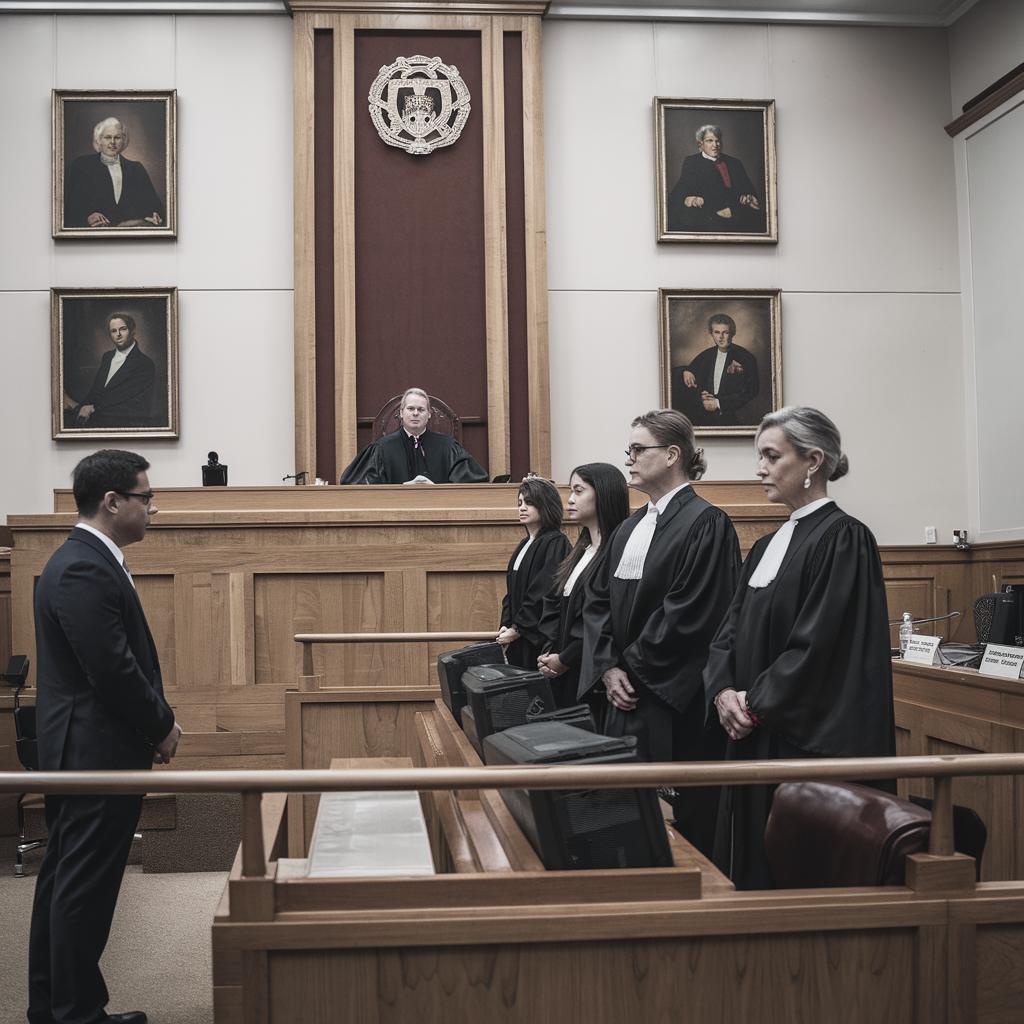Understanding Attorney Fees for Civil Cases
Attorney fees in civil cases can vary considerably based on the complexity of the case, the experience and reputation of the lawyer, and the jurisdiction in which the case is heard. In this detailed guide, we’ll explore the average costs you might expect to incur, the options available if you cannot afford these expenses, and the specific fees associated with different court proceedings. We’ll further delve into fee structures for cases in superior and appellate courts, bankruptcy proceedings, and miscellaneous costs such as sheriff fees and witness allowances. Finally, we will highlight the convenience of paying civil court fees online and offer a comprehensive summary in our final thoughts section.
Overview
Navigating the labyrinth of attorney fees in civil cases can be daunting, yet understanding these costs is essential for anyone involved in legal proceedings. Attorney fees typically reflect the time, expertise, and resources needed to handle your case. Factors influencing these costs include the lawyer’s experience, the geographic region, and the nature of the legal service provided.
For many, the uncertainty of potential costs can deter them from seeking necessary legal assistance. That is why it’s crucial to gain a full understanding of what fees you might encounter so you can prepare accordingly. In addition to attorney fees, there are court fees and other expenses associated with bringing a civil case to trial.
If you cannot afford to pay the fees
Financial constraints should not bar access to justice. If you find yourself unable to afford attorney fees, there are several avenues you might explore. Many legal aid organizations offer assistance to those who qualify based on income and other eligibility requirements. These services ensure access to legal representation for individuals unable to afford it.
Additionally, some attorneys offer pro bono services or may agree to a reduced fee contingent upon case success. Always discuss payment options with your attorney before proceeding. This initiative encourages a collaborative approach to finding the best available payment method and allows for legal representation without undue financial strain.
Superior Court of Justice and Court of Appeal fees
General civil proceeding fees
In general civil proceedings, fees can vary depending on the nature and complexity of the case. Court administration fees typically include filing fees for statements of claim and motions, service charges, and trial fees. These charges are generally set by local statutes and courts.
It’s important to consult the specific fee schedule of the court where your case is being heard for accurate expectations. These schedules outline all required fees, thus preventing budgetary surprises as you progress through your legal journey.
Court fees in estate matters
Estate matters involve unique fee structures compared to general civil cases. Fees can include application charges for probate or administration, estate account passing fees, and other court handling charges. Estate litigation can be particularly fee-intensive given its complexity and sensitivity.
To mitigate costs, it is advisable to seek detailed counsel from an attorney specializing in estate law. Gaining a clear understanding from the onset can help in planning appropriately to forestall unexpected financial burdens.
Construction Act court fees
For cases under the Construction Act, fees often comprise filing notices of lien, certificate registrations, and motion proceeding charges. These fees ensure the fair processing of complex construction disputes and lien resolutions.
Due to the nature of construction legalities, parties involved should prepare for additional expenses while seeking legal representation familiar with the Construction Act to navigate these charges adequately.
Repair and Storage Liens Act court fees
The Repair and Storage Liens Act entails specific court fees including claims for lien, dispute resolutions, and applications for possession. These fees support the administrative aspect of dealing with repair and storage-related disagreements.
If you are involved in such cases, understanding these charges will help ensure compliant payments and facilitate smooth legal proceedings.
Fees for official examiners
Fees related to official examiners concern the transcription of evidence or legal questioning processes. They are critical in maintaining accurate legal records and can vary based on the intricacy and length of the proceedings.
These logged recordings often serve as pivotal evidence in court decision-making, making their meticulous collection and fee structuring an integral part of the legal process across various civil case types.
Fees in bankruptcy proceedings
Bankruptcy proceedings bring their own spectrum of fees, ranging from filing and administration costs to trustee and counseling fees. These costs are structured to cover all necessary bureaucratic processes in the resolution of debt and estate management.
While bankruptcy can be a daunting process, cognizance of associated fees aids in smoother navigation through legal obligations, offering a clearer pathway to financial reprieve.
Sheriff fees (Enforcement Office)
Sheriff fees or enforcement office costs come into play during the execution of court orders, property seizures, and enforcement actions. These fees support the maintaining of law and order by ensuring compliance with legal judgments.
Knowing sheriff fee structures can prevent unexpected charges and promote more effective outcomes during the enforcement phase of civil litigation.
Other fees
Fees and allowances payable to witnesses
Witness fees encompass the per diem rates and travel expenses attribuable to individuals called upon to testify in court proceedings. Maintaining these fees is pivotal in securing essential testimony that could influence case outcomes.
Prior arrangements with involved parties regarding compensation can reduce complications and foster smoother testimonial processes within the civil legal framework.
Fees for court transcripts
Court transcript fees cover the costs of written record provision during and post-trial for anyone requiring case insight or evidence documentation. These costs ensure that comprehensive accounts of proceedings are readily available when needed for legal examination or appeal.
Given their importance, awareness of potential transcript fees allows interested parties to budget accordingly, maintaining informed litigation or appellate pursuits.
Kilometre allowances
Kilometre allowances account for travel expenses incurred in the delivery of legal duties, whether related to witnesses, law professionals, or court officials. They offer reimbursement for mileage, ensuring that all requisite parties can fulfill their obligations within the legal process.
Introducing pre-calculations of these allowances can assist in accurate economic planning, reinforcing a clear approach to addressing logistical costs associated with civil proceedings.
Paying civil court fees online
The convenience of online payments has revolutionized the handling of civil court fees, offering an efficient and immediate means of settling legal costs. Most jurisdictions provide secure online portals for this purpose, thus expediting procedural efficiency and reducing administrative burden.
Familiarization with online payment procedures is advantageous, promoting timely fee submissions and mitigating the risk of delayed court processes attributable to outstanding charges.
Final Thoughts
Understanding the financial obligations in civil cases, from attorney fees to miscellaneous court expenses, is vital for effective legal navigation. Equipping oneself with this knowledge facilitates better preparation, minimizes unexpected financial strain, and ultimately supports equitable access to justice.
| Category | Description |
|---|---|
| Overview | Understanding average attorney fees and basic cost structures. |
| If you cannot afford to pay the fees | Options for financial aid, legal aid organizations, and payment discussions. |
| Superior Court of Justice and Court of Appeal fees | General civil proceeding fees including estate, construction, and lien matters. |
| Fees in bankruptcy proceedings | Understanding associated administrative and trustee fees. |
| Sheriff fees (Enforcement Office) | Understanding costs related to the enforcement of court orders. |
| Other fees | Includes witness fees, court transcript fees, and kilometre allowances. |
| Paying civil court fees online | The benefits and procedures of paying legal fees digitally. |


